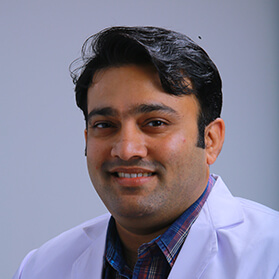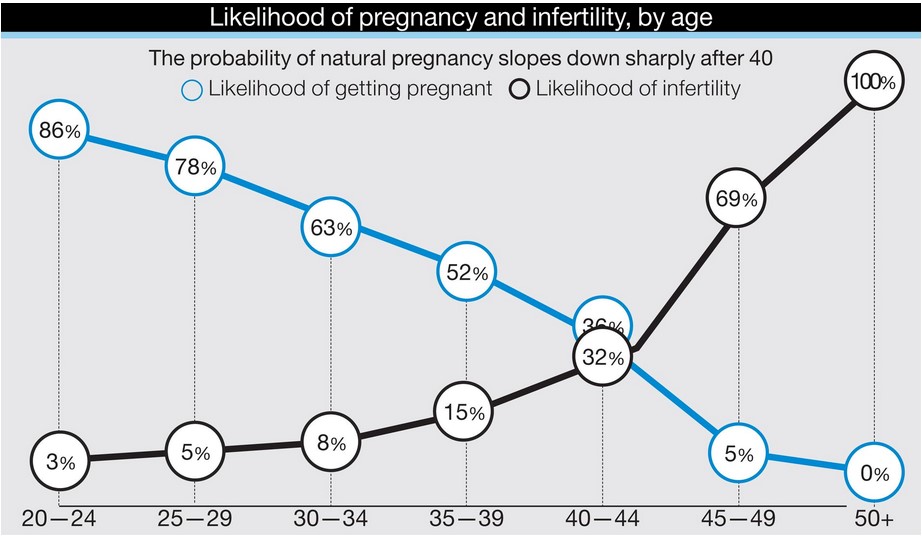Is Age a Relevant Factor affecting Fertility?
What is the best age for women to get married is one of the most common questions we come across. Is there an ideal age for marriage?
We don’t know, but all we know is the best age to get pregnant and deliver is in the early twenties.
Female body and physiology has been programmed in such a manner that the best time is in the early twenties and it plateaus into the thirties and after which there is a rapid fall in the reproductive potential of the female. This is mainly because of number of eggs (oocytes) present in the ovary of the females reduces with age.
Women are born with all the eggs they will ever have. As a woman ages, her eggs age with her, diminishing in quantity and quality.
Age is not something we can control. But if you want a baby or another baby, and you’re married, you can have a conversation with your partner sooner rather than later.
As a woman ages, it takes longer to conceive and the risk of not being able to get pregnant increases. Also, the risk of miscarriage, and complications in pregnancy and childbirth, increase.
Chances of getting pregnant normally:
- Starting at about age 32, a woman’s chances of conceiving decrease gradually but significantly.
- From age 35, the fertility decline speeds up.
- By age 40, fertility has fallen by half.
e
- At 30, the chance of conceiving per cycle is about 20%. At 40 it’s around 5%.
Pregnancy and birth risks for older mothers:
- The risks of pregnancy and birth complications – and caesarean section – increase with age. Complications include gestational diabetes, placenta praevia, and placenta abruption.
- Older women are more likely to have a baby with birth defects or genetic abnormalities.
- A woman over 35 is nearly 2.5 times more likely than a younger woman to have a stillbirth. By age 40, she is more than five times more likely to have a stillbirth than a woman under 35.
e
- For a woman aged 40, the risk of miscarriage is greater than the chance of a live birth.
By the late twenties, the female tend to start developing diseases like Fibroids, endometriosis etc, which will further reduce the chances to get pregnant.
With this, it is very important for all to understand the importance of women and her fertility potential. Even with chances of getting pregnant with procedures like IVF are also less with the increase in age.
About the Author
Dr. Parasuram Gopinath is the Senior Consultant & Scientific Director at CIMAR Fertility Center with branches in several parts of Kerala. Tamil Nadu & Dubai. After Dr Parasuram completed his post-graduation in Obstetrics and Gynecology, his work has been mainly focused on infertility and embryology. He had undergone further training in Advanced Reproductive Techniques like Oocyte Cryopreservation, IMSI, IVM etc. from several centers in Singapore, Germany & Canada. He has personally done over 3000 ICSI procedures and was instrumental in introducing the technique of IMSI in South India. He is an Invited speaker at Several National conferences on Infertility and do also have several publications to his credit.

Dr. Parasuram Gopinath, MBBS. MS(OBG)

